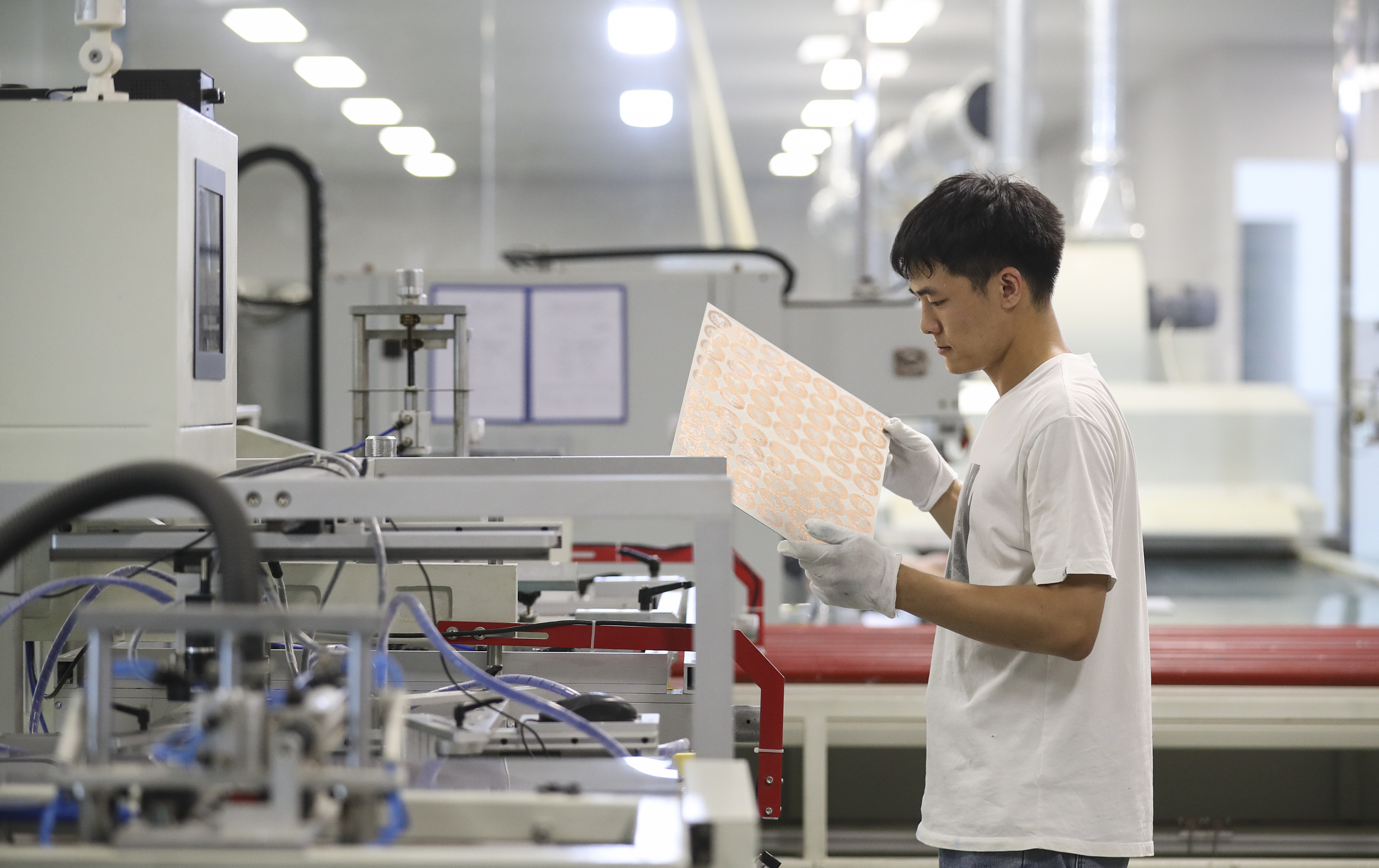Why Does So Much of the World's Manufacturing Still Take Place in China?

A worker from a company based in China's Jiangsu province is making circuit boards. (PHOTO: VCG)
Edited by GONG Qian
Though there's been much talk about moving global manufacturing out of China, many companies are still not moving more of their production out of China.
Why not? As it turns out, China has mastered the craft of manufacturing.
China's manufacturing industry has access to a high level of agglomeration economies - or ecosystem. Take the example of producing a hoodie. It's not just about the textiles needed to cut and sew into a hoodie. It is also about the trims, dyes, zippers, cords and other necessary pieces that are required for assembling the product, said Joseph Eiger, an executive in a global sourcing company that manufactures consumer products.
If a retailer in the U.S. or Canada wants to move the production of the textiles it sells out of China, it would have to move the entire ecosystem with it. Either that, or they would need to source the inputs needed from China into other countries like Bangladesh, where final production would take place.
It turns out that the costs associated with leaving China are simply too high. As long as the ecosystem for manufactured goods remains in China, then so will its significant share of the world's manufacturing.
Walid Hejazi & Bernardo Blum, The Conversation, 14-06-2023







